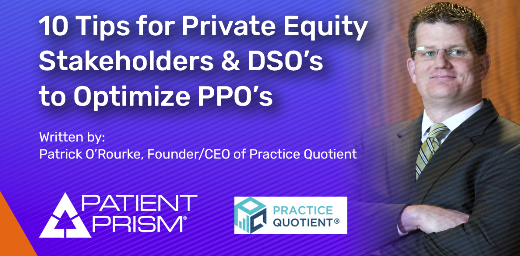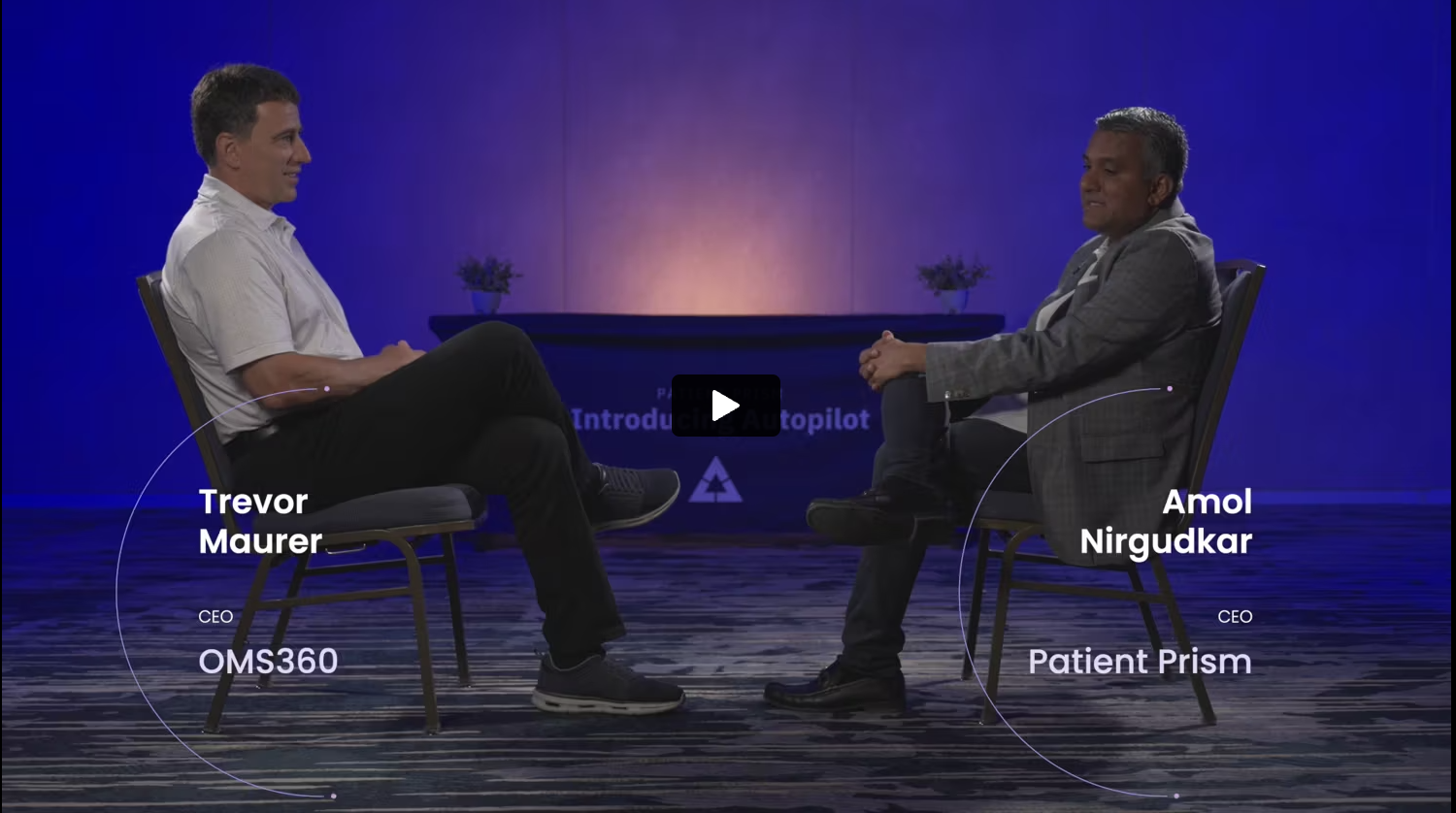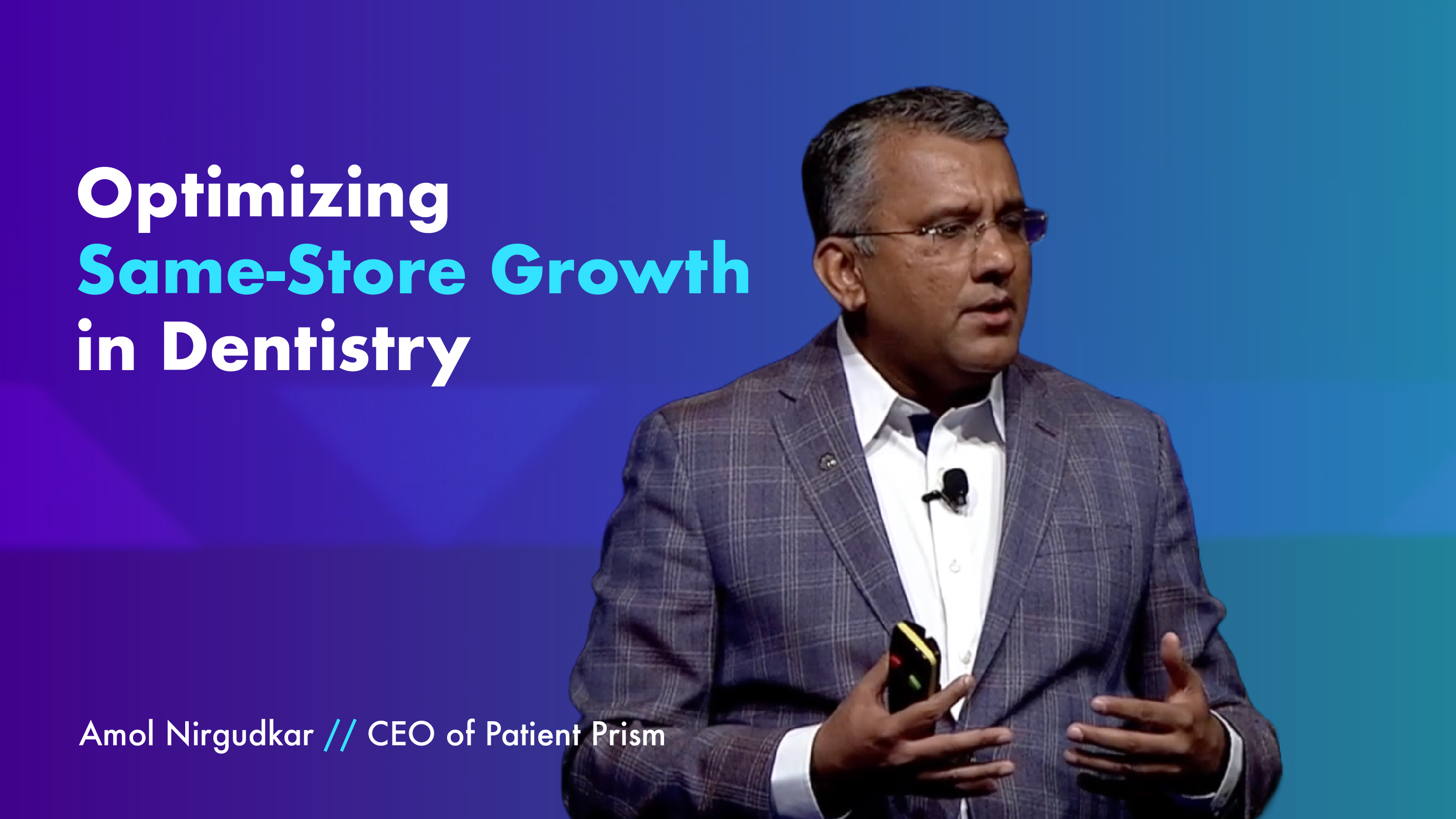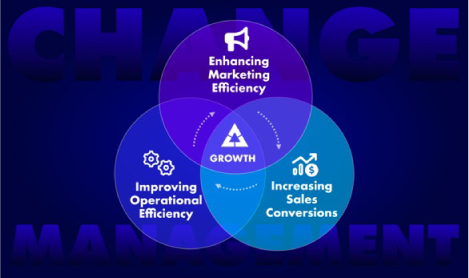Tips for Private Equity DSO.
Dental plan negotiation and credentialing expert Patrick O’Rourke advises DSOs to appropriate adequate resources and establish systems to optimize their network decisions and reimbursement fee schedule. Here he offers 10 tips to help you optimize your DSO’s PPO-related patient acquisition and retention opportunities.
Tip 1: Fully know your DSO’s situation.
Confirm the contents of your current PPO contracts. What fee structure have you committed to and what are the parameters of those contracts? Is a contract for a specific clinical discipline, a specific location or dentist, or organization-wide affecting all locations and associates in your DSO?
Know the annual revenue attributed to each of your PPOs in each of your locations and organization-wide. Also, understand the importance of each individual PPO to your patient acquisition and retention strategy in each unique community you serve. For example, if a practice is across the street from Coca-Cola headquarters, then it would be prudent to monitor the company dental benefits program for employees at Coca-Cola.
Understand how important you are to each carrier and make a case for why your organization deserves to get paid more. Examine each location and provider to learn if the community is already saturated with dental practices in-network or if the provider needs to make inroads in the region you serve. Learn from the provider how many people near your location(s) are covered by the plan.
Tip 2: Understand the value of stability.
Credentialing and negotiation are distinctly separate tasks. When growing rapidly through acquisitions and/or de novas, there may be an urgency to get credentialed asap. If you need patients fast, then you do not possess much leverage. High associate and management turnover also impacts negotiation and credentialing — and significantly impacts new patient acquisition, patient turnover, and revenue. You will likely see downward changes in the metrics you are tracking to assess the value attributable to each PPO during periods of instability.
Tip 3: Review your standard practice fees.
The purpose of this exercise is to safeguard the price of services against inflation and neglect. It is NOT to artificially raise fees for purposes of negotiation. If you cite a handful of current out-of-network claims covered at 100% that were paid in full as your only rationale for raising fees, your assessment will be woefully inadequate. In a perfect world, standard fees should be reviewed by an internal team that solicits input from different departments. Factor in multiple outside data sources to ensure your internal team has made a comprehensive and accurate assessment on which you can adjust your fees and pricing model.
Tip 4: Define your desired outcomes.
Define measurable objectives and success metrics early. Recalibrate as may be needed throughout the process of optimizing your PPO negotiations. For example, need a list here from Patrick O’Rourke of possible objectives he thinks are key.
Tip 5: Appropriate proper resources to hire the experts you need.
The bigger you are, the more money that is at stake for each side. It is safe to assume that the other side is acutely aware of this fact and has long been prepared with a seasoned team of trained professionals. Having your own team of experts will put you on a more equal footing.
Tip 6: Develop an efficient internal process to collect and analyze your data.
Outline your internal process to collect, process, and compare data efficiently. Monitor the process and periodically reassess where improvements are needed. Are you accomplishing your analysis on schedule? Are you achieving your data information collection and evaluation goals?
Tip 7: Have Patience with the negotiation and credentialing process but persist in keeping the process moving.
Proper PPO analysis, negotiation, and contract execution is a time-intensive effort. Having a team of experts working on your DSO’s behalf will help ensure you are optimally moving forward. If you are impatient to execute contracts, you may be trading off the best results. Have your eye on efficiency and keep communication flowing so the process does not stall out. As you negotiate, the response times amongst the many different network providers in your market will naturally vary. Set benchmarks for responses and attempt to close the loop with the person representing the other side.
Tip 8: Respect confidentiality.
Respect the nature of proprietary information and honor confidentiality agreements without exception. Do not ever attempt to use an unrelated Practice/DSO organization’s compensation as a reason you deserve the same. It is irrelevant, and a clear breach of contract. The leaders of your organization must emphasize the importance of confidentiality in this matter at all levels. It would be highly recommended to have a section of the employee handbook explaining company policy and/or individual company information non-disclosures for each employee. If an office manager/associate uses your custom fee schedule at some other practice – then you are liable.
Tip 9: Proactively communicate upcoming changes throughout all locations.
In case of significant change, be prepared for questions and some anxiety from those not involved in the decision-making process. Examples of change include but are not limited to adding new plan(s), becoming out of network with payor(s), and participation alterations adjusted for evolving patient acquisition and retention strategy.
Tip 10: Track your agreements and repeat your analysis and decision process.
Track all your hard-won PPO agreements. The effective dates of these new fee schedules will be spread out over a calendar year. Each new agreement should be honored for a minimum of two years before asking for another raise.
About Patrick O’Rourke
Patrick O’Rourke began his career in operations management at a dental & vision insurance company in Florida, which after several acquisitions and mergers, is now MetLife. He spent five years at Humana in Atlanta selling in the large group segment (100+ employees). In addition to several awards throughout his career, he has earned many professional certifications.
Understanding the nuances involved with all aspects of risk management helped business partners rely on his expertise to guide client recommendations. He is an insurance insider that has built dental networks, worked in operations management, designed dental plans, and opened markets.
In 2013, he founded Practice Quotient, which specializes in dental insurance PPO network contract analytics and reimbursement guidance, representing the dental provider.
As a national public speaker, Patrick educates doctors on how dental managed care participation impacts up to 50% of practice revenue, the importance of diligent contract management, and how to develop criteria specific to a patient acquisition strategy for choosing the best carrier business partners.
Hear more from Patrick on Dental Business Radio: https://www.practicequotient.com/speaking/dental-business-radio/







